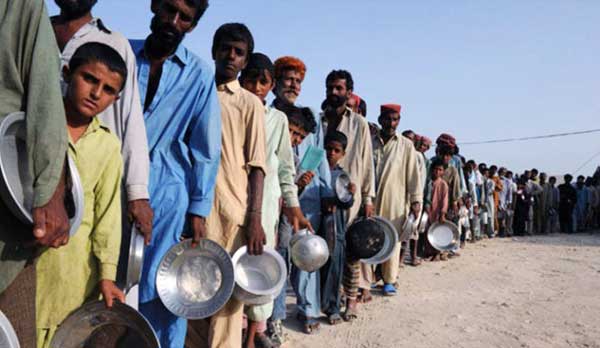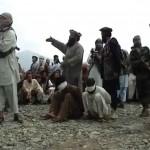In the latest reactions to the increasing security vacuum on its borders with Afghanistan, Pakistan threatened Kabul with direct action against the perpetrators of attacks on Pakistani soil. It warned that Islamabad’s patience is about to run out. Repetition of border incidents between Pakistan and Afghanistan at the same time as the anger of Islamabad government officials due to the assassination operation of their agent in Kabul are some of the causes.
The rise of ISIS from the borders of Afghanistan to Pakistan and the declaration of war by Tehreek-e-Taliban Pakistan (TTP) against that country’s government and army made the Pakistani authorities’ tone down the warning to the Taliban.
The Revision of Islamabad’s Policies Towards Afghanistan
After, the heads of the Foreign Relations Commission in the Senate and National Assemblies of Pakistan demanded the government revise its policy towards Afghanistan, especially to re-examine the way of interaction with the Taliban, the Foreign Minister of Pakistan has also mentioned the possibility of reconsidering the policy of Islamabad in interaction with Kabul. Therefore, Bilawal Bhutto Zardari, who recently went to New York where he had meetings with American officials, announced that his country’s patience was running ou tfor the lack of action of the Afghan-Pashtun Taliban group in Afghanistan to prevent border attacks against Pakistan’s territory.
Zardari accused Pakistan’s eastern neighbor, India, as a traditional rival in the subcontinent, of supporting anti-Pakistani elements based in Afghanistan and said: “Pakistan will no longer tolerate the attacks of Pakistani Tehreek-e-Taliban terrorists from Afghanistan territory and borders.” Tehreek-e-Taliban Pakistan is recognized as a terrorist group by the Pakistani government. The United States has also included this group in the list of terrorist organizations worldwide in recent years. However, the Tehreek-e-Taliban agreed on a temporary ceasefire agreement with the Pakistani army last month and then announced the resumption of attacks against the government of Pakistan and its security forces again.
The Baloch Liberation and Separatist Army
Mr. Zardari, who holds Tehreek-e-Taliban Pakistani responsible for the assassination of his mother, Benazir Bhutto, the former Prime Minister of Pakistan, has announced the right to direct action against terrorist groups supported by hostile services is reserved for Pakistan. Zardari statedduring a speech at the memorial ceremony for victims of terrorism in the United Nations headquarters that “Pakistan will not tolerate such cross-border terrorism by Tehreek-e-Taliban Pakistani or other terrorist groups, such as the separatist group of the Baloch Liberation Army, who receive financial and logistical support from the hostile elements”. He added that, “unfortunately, Tehreek-e-Taliban Pakistani and some other terrorist groups have found “Safe Havens” and are carrying out even more severe attacks against Pakistan’s military and civilian targets”. At the same time, it can be said that “Pakistan has suffered many troubles, including hostile relations with the Afghan people, economic problems, corruption, and internal insecurities inside Pakistan”.
So, Pakistan’s foreign minister’s explicit warning to the Afghan-Pashtun Taliban group in Afghanistan coincides with the eighth anniversary of the deadly attack on a military school in Peshawar, where more than a hundred students and teachers were killed.
The Islamabad Regime and Its Security Concerns
The Tehreek-e-Taliban Pakistani has claimed responsibility for many deadly terrorist attacks in Pakistan, including the Peshawar school attack in December 2014 that left at least 120 dead. The Former governments in Afghanistan have also made a similar accusation against the Islamabad regime, that there are safe havens for terrorists in Pakistan, which, of course, has always been denied by the Islamabad regime’s leaders.
In its recent statement, the Ministry of Foreign Affairs of Pakistan summoned the Chargé d’affaires of the Afghan Embassy in Islamabad in protest against the occurrence of several incidents of shooting on Pakistan’s soil and firing by the border forces of the Afghan-Pashtun Taliban group from Afghanistan’s territory to the civilian areas of Pakistan. Pakistan’s Chargé d’affaires in Afghanistan, who survived an assassination attempt in Kabul on December 11, 2022, returned to Islamabad. After that, the Islamabad regime announced: “Any return of the senior diplomats of the Pakistani government to Kabul would depend on the action of the rulers of the Taliban group to address Pakistan’s security concerns”.
The Taliban is a Product of Pakistan’s Mind
Considering the historical tensions in Pakistan-Afghanistan relations, especially the geographical differences between the two countries, it seems that these two neighbors still have a long way to go to resolve the ambiguities and improve mutual trust. But the Islamabad regime has never been honest with the people and governments of Afghanistan. It has caused severe tensions between these two countries, for which the people of Pakistan and Afghanistan will bear the price.
The dissatisfaction of Islamabad government officials with the non-cooperation of the Afghan Taliban shows the fragile relations between the two sides. However, after the fall of the Afghan government in the summer of last year following the capture of Kabul by this group, Pakistani politicians showed soft positions towards the Afghan-Pashtun Taliban group, which is a product of Pakistan’s mind.
The TTP is a De Facto Threat to Islamabad
Therefore, the end of ceasefire between the terrorist group Tehreek-e-Taliban Pakistani and the government of Pakistan, on the one hand, and the concerns of the Islamabad regime about the movements of terrorist groups inside the territory of Afghanistan, on the other hand, have created an important challenge for Islamabad’s political and military establishment. Regardless of the issues created between Pakistan and Afghanistan following the recent terrorist attack against the Pakistani embassy in Kabul, and regardless of judging the capabilities of the Afghan-Pashtun Taliban group to organize Afghanistan’s security, economic and social issues.
America’s Colonial Presence in Afghanistan
The main root of these issues and unrest should be judged from the deep wounds left by the years of war and invasion by the United States of America and Westerners in Afghanistan. In 2001, US forces and its allies invaded Afghanistan under the pretext of fighting terrorism. More than 20 years of their occupation and colonial presence in this war-torn country not only did not heal the pain of Afghanistan but also aggravated the security, economic, and social situation. America’s colonialist presence in Afghanistan made millions of people homeless in Afghanistan. Its negative consequences have spread not only to Afghanistan but also to the countries of the region and the world.
Peshawar Deadly Attack 92 Killed and 170 Injured _ 30th January 2023
In a suicide attack on January 30, 2023, inside a mosque near a Pakistani police base in the city of Peshawar, located in northwest Pakistan, at least 92 people were killed, and more than 170 others were injured. Doctors in Peshawar of Khyber Pakhtunkhwa state that the condition of some of the wounded in this bloody attack is severe.
According to the head of Peshawar Police Command, among the dead and wounded, there were a large number of policemen and personnel of an anti-terrorism unit whose base is located near the mosque and who had gone to the mosque for noon prayer. According to the Peshawar Police Command, the suicide bomber detonated his explosive vest while standing in the second row of worshipers inside the mosque.
Emergency Security Alert in Islamabad
Last March, an ISIS suicide bomber killed 64 people in an attack on a Shia mosque, which was the heaviest attack since 2018. Nevertheless, 150 people, including many students, were killed in Peshawar in 2014 by Tehreek-e-Taliban Pakistan. According to Geo News, Tehreek-e-Taliban Pakistan (TTP) had claimed responsibility for this attack. At first, two members of Tehreek-e-Taliban Pakistan took responsibility for this bloody attack.
TTP claimed that they took revenge from the enemy for killing Khalid Khorasani, a member of this group. But then the Pakistani terrorist group Tehreek-e-Taliban denied its role in the deadly suicide attack on a mosque in Peshawar, Pakistan. Tehreek-e-Taliban Pakistan denied any involvement in the suicide attack on Monday, January 30, in a mosque in Peshawar city. At the same time, local media reports that in the capital, Islamabad Police has issued an emergency security warning and announced that security has increased at all entry and exit points to Pakistani cities.






My only question is what the strategy India has at the moment if the state of Pakistan were to collapse completely and turn into a lawless badland like Somali-land.
Do we have the resources to tackle a humanitarian crisis on our western borders?
Do we have a defensive strategy to counter any terrorism spilling over from that side? Once the Jihadi outfits take over the present territory of Pakistan, and all resemblance to democracies and civilization disappear, what is to stop them from launching attacks on our regions?
We can of course retaliate. But wouldn’t that lead to a full-fledged war?
In my opinion, India should mobilize an international coalition consisting of NATO troops, Chinese, Russians, Saudis – whoever can put boots on the ground, to keep that territory functioning, and to prevent any starvation or other humanitarian crisis.
But will the Americans and Canadians care enough? They will just leave India to deal with the mess on our own. Even the Chinese don’t seem too interested in coming back to that territory.
In the end, my worst fear is India will be left alone to deal with the problems in Pakistani territory. And our present government does not have a vision or strategy to deal with that issue.